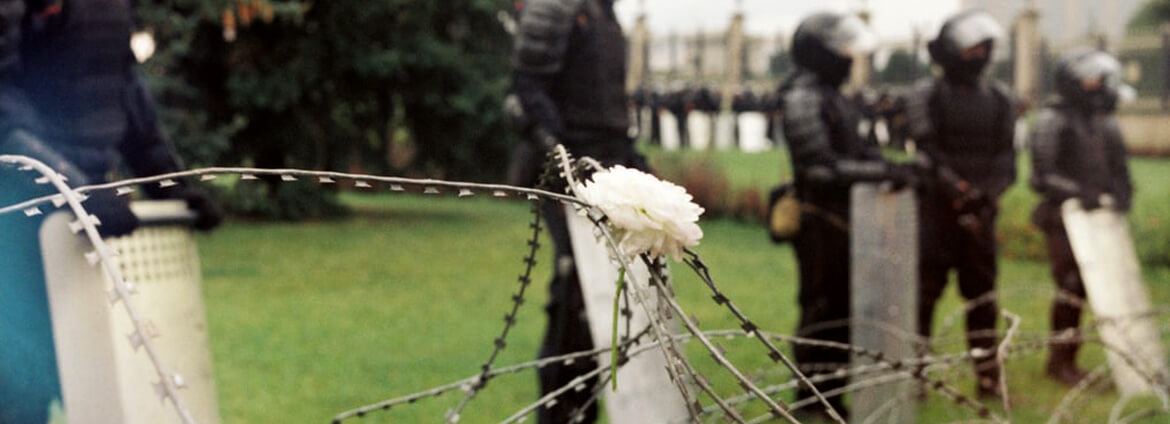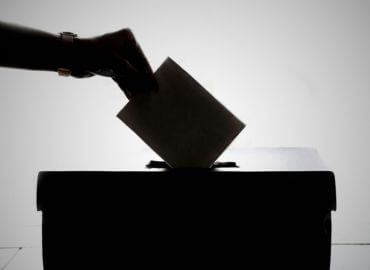Lukashenka signed four «laws»
This is an update on the ongoing political crisis in the Republic of Belarus prepared for you by the International Strategic Action Network for Security (iSANS).
Over the last week, the number of political prisoners grew from 370 to 377 people. The political prisoners are given prison terms of up to 18 in jail. Over last 7 days, the number of journalists in detention grew from 12 to 16. In at least two cases, the journalists reported the use of torture against them by state officials.
As the regime continuously imposes new discriminatory orders that make peaceful protest impossible (whcih Western observers often mistakenly consider as «the end of protest movement»), there is growing expectation that next stage of protests, which may arise closer to August 2021 or during local elections campaign (not later than January 2022) will inevitably become violent as civil population inside Belarus is fast realizing ineffectiveness of peaceful means of protest in relation to current regime while the West still remains reluctant to impose effective sanctions and impose decisive measures to halt all business contacts of politically-exposed businessmen and political leadership of Lukashenka’s regime (such as «state-owned» companies entirely controlled by Lukashenka and his close circle).
The economic situation is worsening, and investment is halted in anticipation of new U.S. sanctions. Large and medium companies formed the largest tax debt in history of measurements. In January-April 2021, tax debt grew by 17.5% and reached BYN 4.310 bln (slightly US $2 bln) with almost half of the debt coming from industrial enterprises. State debt of the Republic of Belarus grew to 37% of GDP with 40% being critical, according to Belarus ministry of finance. In case of Belarus, economic pressure remains the most effective method of coercion as Lukashenka will only remain in control of state security and army for as long as he can sustain them financially.
Sanction that target the «pockets» of Lukashenka (including engaged state companies and Russian businesses affiliated with Lukashenka and his close circle) remain the most necessary and urgently needed move to begin the process of peaceful transit and ensure cracks among the bureacracy in the near future. Notably, after the United States tightened sanctions on Belarus in April 2020, major Russian oil companies halted their supply to one of two Belarus-based refineries which in the long run will cause a substantial loss of financial income at Lukashenka’s hands. Current measures are clearly not enough to end the stalemate that gives Lukashenka time for expansion of repressions.
Despite new efforts to stop protests that last for more than 9 months, Lukashenka remains unable to regain popularity through legal means, and uses force to make all forms of dissident expression criminally liable. As indiscriminate political prosecution of civilians is expanding, the logic of acting regime is to further increase political terror. Over the last 10 days, Lukashenka introduced at least 4 documents that he calls «laws». They provide new grounds for political prosecution and non-accountability for the officials, and foremost the driving force of repressions, the ministry of internal affairs (including so called «internal forces» used for dispersal of political gatherings).
Firstly, Lukashenka has no legal power to impose any legislation as he does not operate in legal capacity and is an individual citizen of the Republic of Belarus who seized power in the Republic using armed force on August 9, 2020. All so called «legislation» that is introduced within the Republic of Belarus at Lukashenka’s illegitimate and illegal orders shall be treated by foreign governments as null and void. Lukashenka signed four «laws»:
1) on preventing the rehabilitation of Nazism;
2) on countering extremism;
3) on state protection;
4) amendments to the laws on ensuring national security.
The logic behind all four «laws» targets any forms of dissident expression and ensures non-accountability for all officials who prove personal loyalty to Lukashenka and his officials. Below we will explain the logic of each document and reasons for its creation.
1. «Rehabilitation of Nazism»
State propaganda represents civil population and all groups and individuals countering Lukashenka as – literally – Nazis engaged in promotion of ideas of Adolf Hitler, NSDAP and SS who are currently involved in organization of pro-Nazi coup in 2020-2021. State propaganda labels the protesters as «Nazis» or «followers of Nazis» using a single illegitimate argument. Propagandists claim connection between national white-red-white flag that was created in 1918 and has since then been used as national flag inside and outside Belarus for 100+ years and was the official flag in 1991-1995. Propaganda claims that the use of white-red-white flag by civilians in times of Nazi occupation and its use by a small group of Belarusian collaborators who cooperated with the invading Axis powers in 1942-1945, makes it a Nazi symbol (which thus requires ban on the use of numerous flags EU countries as well as Russia on the same grounds).
Although white-red-white flag was never banned, state officials treat it as «prohibited symbol» and punish civilians for its use because it is used by the national movement. Further, general-prosecutor Andrei Shved, who is controlled by Lukashenka, goes further and aims to label Lithuanians and Poles as war criminals. Last week, Shved announced his plans to acknowledge Polish Home Army (Polish: «Armia Krajowa») soldiers as responsible for genocide of Belarusians in 1941-1945. Notably, Shved additionally mentioned Lithuanian SS battalions as responsible for the same crime, but the irony is «Lithuanian SS battalions» never existed.
2. «Countering extremism»
Through this order Lukashenka attempts to «legalize» a de-facto ban on criticism of any activity and / or official representing the regime of Lukashenka. The document equals criticism and «discreditation» of acting authorities as crime of extremism which is criminally punished. Considering judicial practice and repressive practices of the ministry of interior in given circumstances, acting administration makes all peaceful street marches and political performances in public space criminally punished. The order introduces criminal punishment for the use of symbols, images and even portraits of people acknowledged as «extremists» by the acting authorities (since August 9, 2020 numerous peaceful activists and politicians were acknowledges as «extremists» for their engagement in national movement).
3. «State protection»
New «law» on state protection in its essence promotes and ensures non-accountability for officials loyal to Lukashenka and guarantees state protection measures that include change of human appearance («изменение внешности») which may be treated as state-provided guarantee of plastic surgery for those involved in crimes conducted on and after August 9, 2020.
4. «National security»
The so called «legislation» introduced by Lukashenka and his subordinates (including the so called «parliament» and the «government») aims to «legalize» all illegal practices of state security and the ministry of interior used on and after August 9, 2020. In particular, Lukashenka signed into «law» non-accountability of personnel employed by the ministry of interior and paramilitary for ANY damage suffered by civilians, private and public infrastructure «when used in accordance with laws». New document allows the ministry of interior to use combat weaponry and special purposes equipment and machinery against «mass disturbances» (this term is used by the acting regime in relation to peaceful protests). The ministry of interior is given «legal» authority to ban photography, sound recording and videography at all times and conduct any form of complete inspectional of personal belongings and transport immediately after detainment.
This document «legalizes» a part of de-facto martial law deployed in Belarus since early 2021. As civilians are denied all forms of peaceful expression of political views, there is growing public perception of current situation in Belarus as «internal occupation». Freedom of thought (a.k.a. freedom of conscience or ideas) is under factual ban as people are being arrested for reasons as absurd as owning private belongings with national symbols or having «ideologically wrong» stickers attached to their private property kept concealed.
Recently, the regime of Lukashenka introduced a practice of joint patrolling of civilian areas by the ministry of interior and military service. Military personnel is engaged in politically-motivated patrol operations against civilians under command of the ministry of interior. This practice violates national legislation as military personnel in patrols may not be managed by the ministry of interior, and proves continuous political engagement of the armed forces of Belarus in political repressions.
Through the latest civil and military orders, the group under command of Aliaksandr Lukashenka (which now claims to represent the Republic of Belarus, including its so called «ministry of foreign affairs» which claims legal representation of the Republic abroad) clearly acknowledges it does not perform in public good, and has deliberately established «legal» class segregation between the general population and officials loyal to Lukashenka, foremost the employees of the ministry of interior and state security units.
Best regards,
iSANS team










